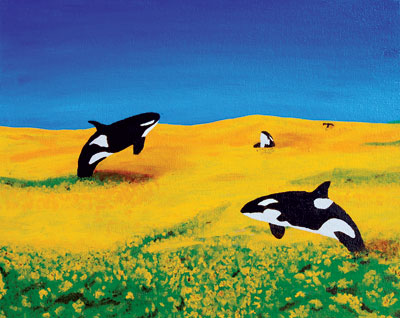All Nonfiction
- Bullying
- Books
- Academic
- Author Interviews
- Celebrity interviews
- College Articles
- College Essays
- Educator of the Year
- Heroes
- Interviews
- Memoir
- Personal Experience
- Sports
- Travel & Culture
All Opinions
- Bullying
- Current Events / Politics
- Discrimination
- Drugs / Alcohol / Smoking
- Entertainment / Celebrities
- Environment
- Love / Relationships
- Movies / Music / TV
- Pop Culture / Trends
- School / College
- Social Issues / Civics
- Spirituality / Religion
- Sports / Hobbies
All Hot Topics
- Bullying
- Community Service
- Environment
- Health
- Letters to the Editor
- Pride & Prejudice
- What Matters
- Back
Summer Guide
- Program Links
- Program Reviews
- Back
College Guide
- College Links
- College Reviews
- College Essays
- College Articles
- Back
Not Very Amusing
When someone talks about orcas you probably picture Seaworld. It seems as though it is the only amusement park featuring large water mammals in the U.S. The park has gone through much to cultivate this recognition and for good reason, it makes them money. With every guest that these unique creatures bring in, Seaworld makes more and more profit. Not even bad publicity from Blackfish (2013) could ultimately stop this park's popularity. This being the case, it just isn't right. To contain orcas in small enclosures no where near the size of their natural habitat and constantly surrounded by noise is extremely cruel treatment.
Indeed, we keep many animals in captivity. Zoos all over the country are filled with animals from other continents, some kept in this captivity for their own safety and others for our own amusement. Perhaps it is also a matter of ego. A human will view a lion, king of the jungle, that is behind a thick glass wall and feel a subconscious sense of superiority. Whether or not this is true for you, this sentiment must not be extended towards orcas. Being kept in captivity has shown to be nothing but bad for the species, with many of the orcas living several times shorter lives in captivity than they would naturally. In fact, “the maximum lifespan of captive orcas has matched the mean life expectancy of wild orcas. As a corollary, very few captive orcas who have died achieved the mean life expectancy of wild orcas” (“Killer Controversy” Rose 2). Such outrageous figures as these, many of which are directly counter to the facts Seaworld affiliates attempt to fool park visitors with, leads to the question of whether or not the parks serve any benefit to the animals at all. In response to this, one might try and suggest that by putting orcas on display, Seaworld generates public interest in and concern towards these creatures which helps preservation efforts in the wild. My response to this is to point at all the other aquatic mammal amusement parks that follow in Seaworld’s footsteps, hoping to attain the same level of profit by capturing their own sets of wild orcas to parade around. Almost every piece of research that hasn’t been paid for by a Seaworld affiliate shows that these creatures do not thrive in captivity, and often suffer instead. When your child learns about orcas, you do not want to teach them about how we as humans put them through such cruel treatment, but rather help them learn about the creatures in a way that is not so destructive.
The question is often asked regarding where these animals will go if the parks were to be forced to free them. Conditions in the parks is so unlike their natural habitat “as the largest orca tank in the world is less than one ten-thousandth of one percent (0.0001%) the size of the smallest home range of wild orcas”(“A win-win solution” Rose 3). This along with several other unfortunate facts about how the orcas live in captivity makes many think that it would be extremely hard for them to readjust to the wild again. Luckily, there is a solution that is both humane and practical. Orca sanctuaries, where the mammals would live in netted-off bays, or other similar situations, offer far more breathing space. They would still be kept in “captivity” but in a way that most closely resembles their natural conditions. Not only would this be better for the animals, but these sanctuaries would allow researchers to better understand the creatures, which would further science as well. This is the most cost-efficient, logical, and most importantly ethical solution to a problem caused by decades of insensibility towards the creatures.
If there exists a solution to this problem, it needs to be taken. Orcas should not be kept in amusement parks when they could be kept humanely in peaceful conditions elsewhere. After learning more about the treatment of orcas by these amusement parks, I would not ever be able to be happy seeing the species again, unless it was in the wild where they were meant to be seen.

Similar Articles
JOIN THE DISCUSSION
This article has 0 comments.
